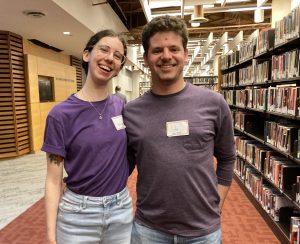JSpace Canada seems to be progressing in its progressiveness. The self-described “progressive, pro-Israel, pro-peace voice in Canada” is hosting its third biennial conference in Toronto on Oct. 28 and 29, under the theme, “Israel Today and Tomorrow: Bridging the Divides.”
The organization’s inaugural conference in 2013 addressed “raising the progressive Zionist voice – for Israel’s sake.” Two years ago, it was “the importance of the progressive Zionist voice.”
This time, some 200 attendees will hear two dozen panellists and opinion shapers talk about “sustaining the progressive voice – for Israel’s sake.”
Part of the discussion will be on reclaiming the word “progressive,” JSpace Canada chair Karen Mock told The CJN.
Launched in 2011, JSpace is “very pro-Israel,” Mock said. “There are elements in the community who use pejoratives like ‘so-called progressive Jews.’ We like to adhere to what the traditional understanding of the term ‘progressive’ is.”
READ: COTLER LAYS OUT JUST MIDEAST POLICY AT JSPACE AGM
According to its website, JSpace “strongly” supports a two-state solution in the Middle East; it opposes Israel’s Jewish settlements as “an obstacle” to peace; and it is against the boycott, divestment and sanctions campaign, as well as initiatives that challenge Israel’s right to exist.
The parley will get underway at 7:30 p.m. on Oct. 28 at the University of Toronto’s multi-faith centre (569 Spadina Ave.), with the film Wrestling Jerusalem, which will be introduction by its associate producer, Sara Schwartz Geller. Following the screening, a question-and-answer session is scheduled with the director, Dylan Kussman.
The day-long plenary on Oct. 29 at Ryerson University’s Engineering Centre (245 Church St.) will examine divisions in the Jewish and wider communities, when it comes to the hot-button issue of Israel and the Palestinians.
“Some people feel that opinions in the Diaspora are irrelevant,” Mock said. “Others feel they’re very important and we need to do what we can to work together.”
The keynote address, titled “Israel Today and Tomorrow – Internal and External Challenges,” will be delivered by Prof. Janice Stein, founding director of the Munk School of Global Affairs at the University of Toronto.
The guest speaker will be U.S. journalist and liberal political commentator Peter Beinart.
“We’re going to be exploring what it is that divides us,” said Mock. “We’re going to tackle head-on the notion of the increasing divides, how we find common ground and unite to support Israel and what it stands for.”
Fissures to be explored include those between Israel and the Diaspora, within the Jewish community itself and in legal interpretations that pit international law against the United Nations, according to the conference program.
Mock hopes that at least a third of those in attendance will be young people who will explore the heated atmospheres on university campuses.
“It’s why JSpace was created – to help young people, in particular, who have been silenced on campus to find their voice. They believe in human rights and social justice, but were not finding a place in those of kinds of venues, where people were talking about human rights and anti-oppression, to speak safely about Israel.”
Students from across Canada are expected to hold their own sessions.
Afternoon programs will address bridging divides, and how to do that in a more measured way, at least according to one session’s title: “How to talk about Israel/Palestine with More Light than Heat.”
A session will look at whether the media deepens divides and how to present facts in a new “alt-facts” world.
The main take-away, said Mock, is finding commonality.
“The more people in our community can work to find common ground to support Israel in achieving the original goals of its declaration of independence, the stronger we feel Israel and indeed the rest of the world will be,” Mock said.


